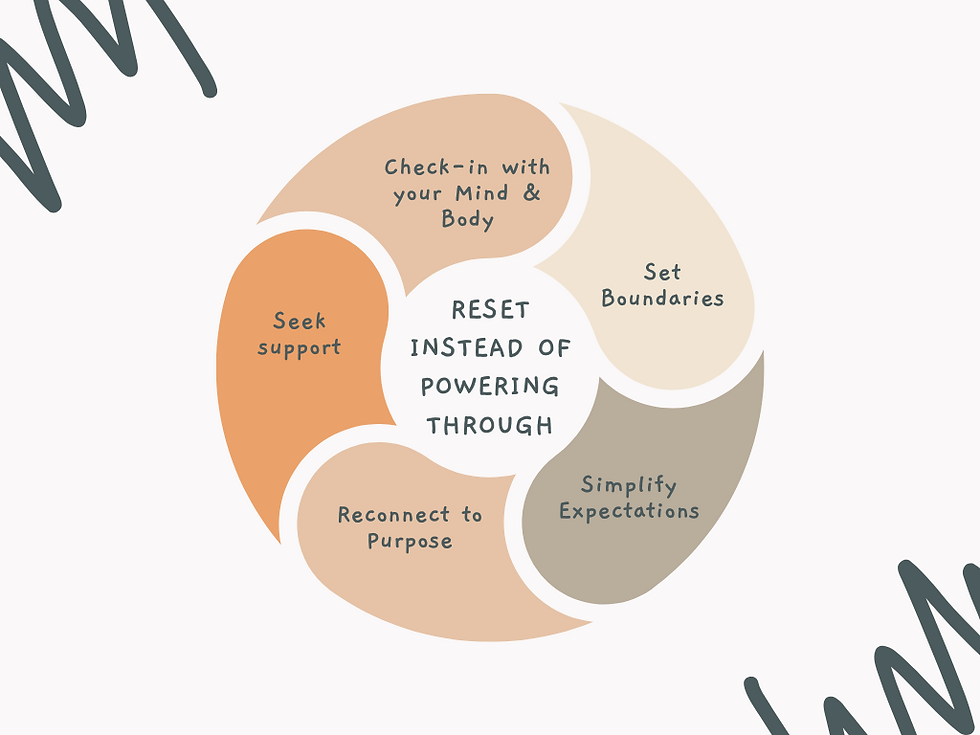Anxiety in Motherhood
- endurancementalhea
- Mar 14, 2023
- 2 min read
Most mothers would say that being a mom is one of the most challenging, yet rewarding jobs on the planet. However, all of the responsibilities that accompany this job can often lead to stress, worry, insomnia, and loss of sense of self. reading. For many of us, these responsibilities are accompanied with juggling a career and managing a household. If you are anything like me, my mind can often feel like a computer screen with multiple different windows open that I toggle between hundreds of times per day. Did I pack the lunches? Whose picking up the dogs from the groomer? Have I ordered the Easter baskets? Do we all have clean clothes for church on Sunday? I hope the kids are not getting sick. Do we have Tylenol? The list goes on and on. As much as I try to keep the worries at bay, the floodgates of information often seem to release just when I finally crawl into bed after a long day. So when does having a mind that is running 90 MPH become less productive and more syndromal?

When does the anxiety become more than just typical worries and become a clinical condition? Anxiety, or racing thoughts, are a normal reaction to stress. This mechanism in the brain was created to help us be productive and avoid dangerous situations. The Diagnostic and Statistical Manual of Mental Disorders, fifth edition (DSM-5) defines anxiety disorders as feelings of nervousness or anxiousness that involve intense feelings of fear or anxiety. The main difference between anxiety that helps us be productive vs. excessive worry that needs to be treated is the amount at which it is occurring and how it affects our lives. If your racing thoughts are keeping you from participating in life to the fullest then you should speak to your mental health provider. Endurance Mental Health specialize in treating anxiety disorders and would love to help you navigate this situation.
Mitigation Strategies for Managing Anxiety:
Routine sleep is the most important. Try to go to bed around the same time every night. Practice good sleep hygiene techniques.
Eat a balanced diet. When life is busy that is easier said than done right? Try to keep the processed foods to a minimum and keep healthy quick foods on hand for those busy days.
Journal your thoughts. Writing things down helps to slow mental cognition. I practice this by journaling every morning during Bible study and it makes a big difference in my anxiety levels.
Exercise 3-4 times per week. Getting any form of exercise reduces anxiety and stress.
Limit alcohol. While alcohol makes us feel relaxed when we drink it, as it starts to wear off a few hours later, anxiety increases.
Limit screen time. Information overload worsens anxiety and racing thoughts. Be conscious of the quality and quantity of the media you are consuming and limit use to less than 2 hours per day.
Endurance Mental Health specializes in treating anxiety disorders and would love to help you navigate this situation! Contact us today for a free 15-minute consultation.



